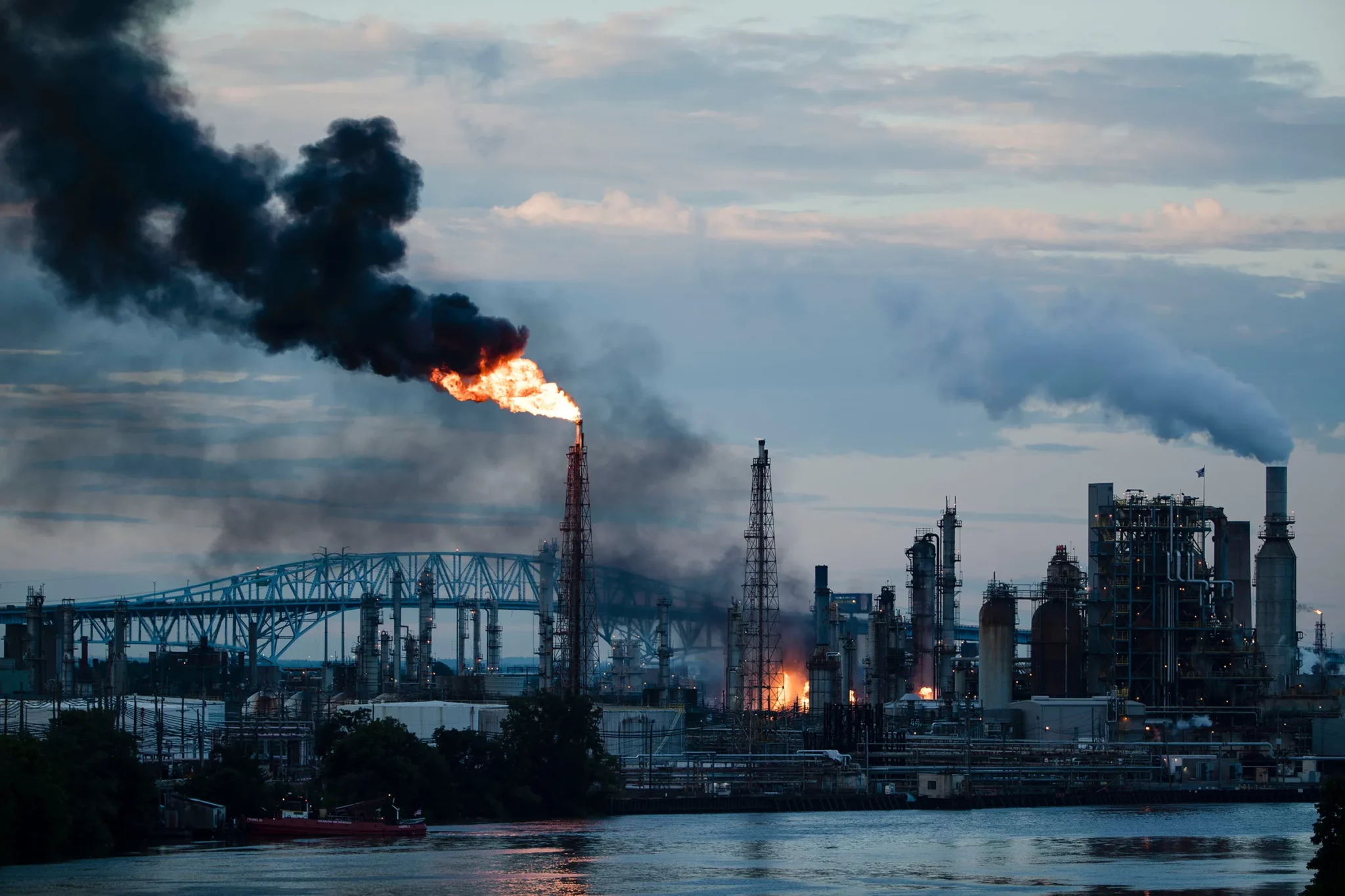it is important that the state and Federal government shun all forms of discriminatory approaches to environmental designs, implementation and enforcements, as concentration of environmental attention in one part of the state to the detriment of others is nothing but environmental injustice.
To a large extent, the above confirms as true the recently published report which among other concerns noted that Nigeria has about 139 gas flare locations spread across the Niger Delta, both in onshore and offshore oil fields, where gas that constitutes about 11 percent of the total gas produced are flared. Apart from the health implication of flared gases on humanity, its adverse impact on the nation’s economy is equally weighty.
Banking on what experts are saying, the major reason for flaring of gases is that when crude oil is extracted from onshore and offshore oil wells, it brings with it raw natural gas to the surface and where natural gas transportation, pipelines, and infrastructure are lacking, like in the case of Nigeria, this gas is instead burned off or flared as a waste product as this is the cheapest option. This has been going on since the 1950s when crude oil was first discovered in commercial quantities in Nigeria.
While Nigeria and Nigerians persist to encounter gas flaring in the country, even so has successive administrations in the country made both feeble and deformed attempts to get it arrested.
The facts are there and speak for it.
In 2016, President Muhammadu Buhari led administration enacted Gas Flare prohibition and punishment), an act that among other things made provisions to prohibit gas flaring in any oil and gas production operation, blocks, fields, onshore or offshore, and gas facility treatment plants in Nigeria.
On Monday 2nd.September 2018 Dr. Ibe Kachikwu, Minister of State for Petroleum (as he then was) while speaking at the Buyers’ Forum/stakeholders’ Engagement organized by the Gas Aggregation Company of Nigeria in Abuja among other things remarked thus; ‘I have said to the Department of Petroleum Resources, beginning from next year (2019 emphasis added), we are going to get quite frantic about this (ending gas flaring in Nigeria) and companies that cannot meet with extended periods –the issue is not how much you can pay in terms of fines for gas flaring, the issue is that you would not produce. We need to begin to look at the foreclosing of licenses’.
The threat has since ended in the frames as the Minister did little or nothing to get the threat actualized.
The administration also launched the now abandoned National Gas Flare Commercialization Programme (NGFCP, a programme, according to the Federal Government aimed at achieving the flares-out agenda/zero routine gas flaring in Nigeria by 2020.
Again, like a regular trademark, it failed.
Away from Buhari’s administration, in 1979, the then Federal Government in similar style came up with the Associated Gas Re-injection Act which summarily prohibited gas flaring and also fixed the flare-out deadline for January 1, 1984. It failed in line with leadership philosophy in the country.
Similar feeble and deformed attempts were made in 2003, 2006, and 2008.
In the same style and span, precisely on July 2, 2009, the Nigerian Senate passed a Gas Flaring (Prohibition and Punishment) Bill 2009 (SB 126) into Law fixing the flare-out deadline for December 31, 2010- a date that slowly but inevitably failed. Not stopping at this point, the FG made another attempt in this direction by coming up with the Petroleum Industry Bill which fixed the flare-out deadline for 2012. The same Petroleum Industry Bill (PIB) got protracted till 2021 when it completed its gestation and was subsequently signed into law by President Buhari, as Petroleum Industry Act (PIA).
Despite this vicious movement to save the environment and its people, the Niger Delta challenge remains. So the question that is as important as the piece itself is; if this legion of laws/Acts cannot save the people of the region, who will? When will it complete its gestation period and deliver the targeted environmental protection/justice to the people of the Niger Delta region?
While answer(s) to the above question remain germane, this piece also identifies government’s reluctance to appreciate development plans and reform programs from a rights-based perspective, as another fundamental obstacle to realizing environmental justice in the country.
This non-infusion of human right perspective to development adversely acts as impediment to the application of principles of participation, accountability, transparency and non-discrimination towards the attainment of equity and justice in development initiatives.
As clarified by the United Nations Independent Expert on the Right to Development, for a programme to be tagged development, it must require a particular process that allows the realization of economic, social and cultural rights, as well as civil and political rights, and all fundamental freedoms, by expanding the capabilities and choices of the individual.
To operationalize the above guideline, it is important that the state and Federal government shun all forms of discriminatory approaches to environmental designs, implementation and enforcements, as concentration of environmental attention in one part of the state to the detriment of others is nothing but environmental injustice.
As stated elsewhere “the intentional involvement of traditionally underrepresented communities — especially low-income people of color — is key to addressing local environmental justice concerns. Not only do these communities benefit from inclusion in the planning processes, but their knowledge can help those making planning and policy decisions in identifying activities of polluters and potential hidden hazards that they may not even realize exist.
Utomi, programme cordinator (media and public policy), Social and Economic Justice Advocacy (SEJA), writes from Lagos.




One Response
Can you be more specific about the content of your article? After reading it, I still have some doubts. Hope you can help me.